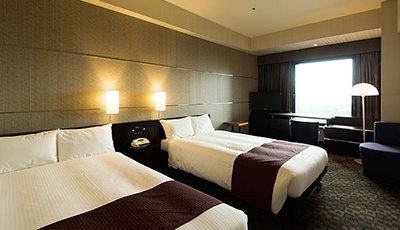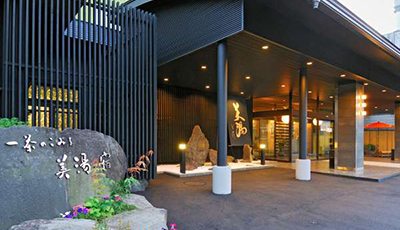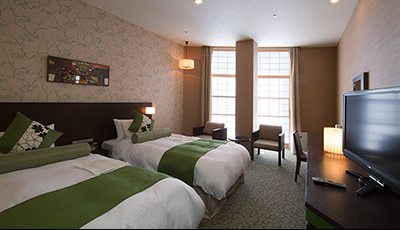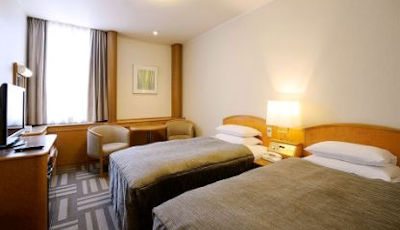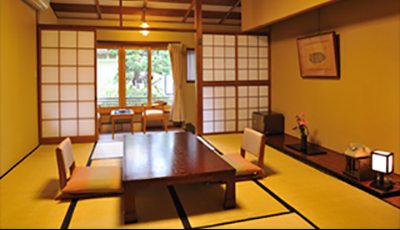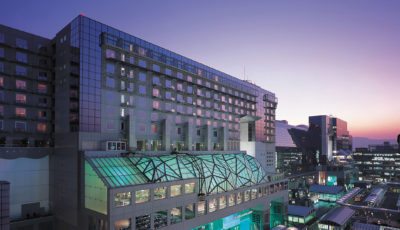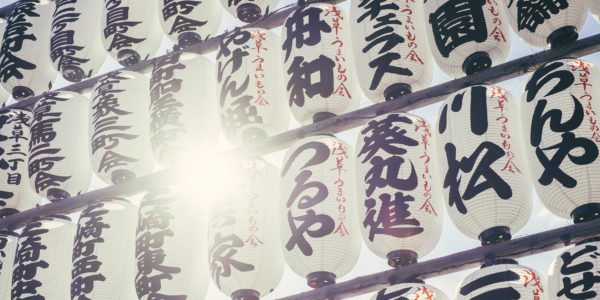Private/Group Tour Highlights
- Soak in the atmosphere of the Tokyo of old
- Visit Sensoji, Tokyos oldest temple
- Japan's world famous Shinkansen bullet train, with a top speed of 300km/h (186 mph)
- Witness the first Buddhist statue ever brought to Japan
- Ryokan stay, traditional style accommodation with hot spring onsen baths
- See local people in kimono strolling down the street in yukata (Light Robes)
- kaiseki meal, made up of seasonal dishes of fresh local Nagano ingredients
- Learn the basics of the same sitting meditation that led the Buddha to Enlightenment
- Make a scenic journey to holy Mt Koya
- Enjoy a stay at a shukubo, or Japanese temple lodging with traditional Buddhist cuisine
- Witness the monks chanting their morning prayers
Tour Overview
Learn of Japan’s brilliant history, and find your true Zen, with Yampu’s Japanese Zen Tour. During the 6th Century BC, Buddhism had been established in India, consisting of the teachings of the Buddha, Gautama Siddhartha. Shortly after, Buddhism was introduced to the Islands of Japan with the help of both China and Korea. It wasn’t until 1191 that the Zen Sect was introduced from China, gaining popularity particularly among the members of the military class. According to Zen teachings, one can achieve self-enlightenment through meditation and discipline. From the beautiful Zen Gardens throughout Tokyo, to the tranquil Zen Temples of Kyoto, to the historic Mount Koya, learn of this magnificent path to self-awareness by Letting one’s ego and unconscious mind melt away, to merge and become one with the universe.
Start off with a tour of Tokyo to learn of this nation of contrasts. Walk through Asakusa, Tokyo’s old town where you can soak in the atmosphere of the Tokyo of old and see the city’s rich history blending seamlessly with the modern culture. Hop onto Japan’s world famous Shinkansen bullet train to Nagano for an unescorted visit to historic Zenkoji temple, home to the first Buddhist statue ever brought to Japan. Afterwards stop by the Jigokudani Yaen Koen to see the famous Snow Monkeys bathing in the areas hotsprings. While in the area, experience the warm healing waters, much like the snow monkey’s, with some time spent at an onsen, a hot spring spa of sorts, with your traditional style accommodation at a local Ryoken. Once in Kyoto, enjoy the quintessential Japanese enlightenment experience – Zazen or Zen meditation, finishing the day with a traditional tea ceremony. After this detailed tour throughout Japan, Yampu Travelers will return home with a better understanding of this magnificent country’s history, as well as an understanding of their own personal connection to the world.
Inclusions
Note; Prices are based on shared services, please contact a Yampu Travel Consultant for Private pricing.
Exclusions
International airfare (unless specifically included), airport departure taxes that must be paid on-site, gratuities, meals not mentioned, soft drinks and alcoholic beverages with meals, early / late check-out, room service, visa fees/services and other personal items or services not mentioned.
Package Price: From £$ 7542
Prices shown above are per person. Hotel categories do not adhere strictly to international ratings; Yampu has evaluated the hotels according to destination and availability. Prices include local airfare (where applicable), hotel accommodation including daily breakfast; all transfers with baggage handling, all guided tours in English and all entrance fees.
Please note that prices are subject to change based on availability and seasonality, especially during the holiday season from December 20th through January 5th each year. Please contact a Yampu Travel Specialist for more information on best times to travel.
Trip Type:
All our trips are operated on a private basis unless specified otherwise. This is only a sample itinerary; your Yampu Tour Consultant will personalize this trip for you according to your available dates, interests and type of hotels. This is your trip and we will work on making it perfect!
Tour Itinerary
Nihon e yōkoso
Welcome to Japan
On arrival at Narita Airport, be met in the arrival hall by the driver who will assist with the transfer to the hotel (60-90 minutes). The remainder of the day is at leisure.
Welcome to Japan
On arrival at Narita Airport, be met in the arrival hall by the driver who will assist with the transfer to the hotel (60-90 minutes). The remainder of the day is at leisure.
Full Day New and Old Tokyo Tour
Take read more...
Take a day tour of this fascinating city with a local guide, making use of Tokyos comprehensive and user friendly public transport system. The day begins with a visit to Meiji Shrine, a shrine dedicated to the deified spirit of Emperor Meiji and a popular place for traditional Japanese weddings. Take a walk down Omotesando shopping street, a broad tree lined avenue home to the flagship stores of the worlds top fashion brands.
Head across town to Asakusa, Tokyos old town and soak in the atmosphere of the Tokyo of old. Visit Sensoji, Tokyos oldest temple and wander down Nakamise, a shopping street that has been providing temple visitors with a variety of traditional, local snacks and tourist souvenirs for centuries. Take a boat cruise on the Sumida River passing under 12 bridges. Disembark in Hamarikyu garden, an Edo Period Japanese garden surrounded by the Shiodome district's futuristic skyscrapers, a great example of how Japan is the land of contrasts. Stop for a cup of steaming matcha and Japanese sweets in a tea house on a small island in the park's lake.
...read less
Tokyo - Yudanaka
Enjoy read more...
Enjoy this morning at leisure. In the early afternoon, board Japan's world famous Shinkansen bullet train. With a top speed of 300km/h (186 mph), the Shinkansen takes 100 minutes to reach Nagano. Whilst in Nagano, one may want to take an unescorted visit to historic Zenkoji temple, a short bus ride from Nagano station. One of the most visited temples in Japan, Zenkoji was founded 1400 years ago and stores what many believe to be the first Buddhist statue ever brought to Japan. Zenkoji's main hall has a tunnel in its basement in which visitors are trying to find and touch the key to paradise in complete darkness. The key is attached to the wall and grants enlightenment to anybody who touches it.
From Nagano, take a local train to Yudanaka (45min), and then it is a short ride in the shuttle bus to this evenings ryokan. This traditional style accommodation has tatami mat flooring, futon beds and hot spring onsen baths. As well as in the ryokan, there are many public onsens around town that one can try as well. See local people in kimono strolling down the street in yukata (light robes) as they head for a soak. Dinner tonight will be a Japanese traditional kaiseki meal, comprised of 9 or more dishes. The meal is made up of seasonal dishes using only the freshest of local Nagano ingredients.
...read less
Snow Monkeys and Sake Brewing
This read more...
This morning, head to the Jigokudani Yaen Koen to see the famous Snow Monkeys. Jigokudani literally means Hell's Valley due to the steam and boiling water that bubbles out of small crevices in the frozen ground. It is in the baths of this boiling water that the resident Japanese Macaques like to soak in. The monkeys live in large social groups, and it can be quite entertaining to watch their interactions. Accustomed to humans, they can be observed from very close and almost completely ignore their human guests. Whilst the monkeys are most numerous during the colder months, they can be observed year round.
In the afternoon, a visit to the nearby charming town of Obuse, is recommended. With traditional houses, stores and streets. Obuse is known for its delicious chestnuts and as the home of Hokusai, the famous painter and printmaker from Japan's Edo period, and a visit to his museum here is a must. No visit to Obuse is complete without stopping in at the Masuichi sake brewery for a taste of their delicious sake made from the high quality local rice.
...read less
Bullet train to Kyoto with an afternoon at leisure
Today, ride the scenic Shinano limited express train to Nagoya, speeding through the beautiful Japanese Alps, and then change onto the bullet train to Kyoto. The journey will take a total of 3.5 hours. Enjoy the afternoon at leisure.
Today, ride the scenic Shinano limited express train to Nagoya, speeding through the beautiful Japanese Alps, and then change onto the bullet train to Kyoto. The journey will take a total of 3.5 hours. Enjoy the afternoon at leisure.
Spiritual Kyoto Day Tour
This read more...
This morning experience the quintessential Japanese enlightenment experience, Zazen (Zen meditation). The guide will meet in the morning to head out to a Zen temple, where travelers can learn the basics of the same sitting meditation that led the Buddha to Enlightenment: folded legs, erect posture, half-closed eyes and a focus on measured breathing that leads to awareness of the way the mind works. After Zazen, head to Chion-in temple. Chion-in is the head temple of the Jodo (Pure Land) sect of Japanese Buddhism, which has millions of followers and is one the most popular Buddhist sects in Japan. The Sanmon Gate, Chionin's main entrance gate, stands 24 meters tall and 50 meters wide, making it the largest wooden gate in Japan and dates back to the early 1600s.
From Chion-in walk through Maruyama Park and Yasaka Shrine, one of Kyoto's most popular Shinto Shrines. This spiritual day finishes with a Tea Ceremony in a Gion tea house. The Tea Master will give a full explanation of Japanese tea as well as the tea ceremony itself, its long history and relationship with Zen Buddhism. The Master will also explain the meaning behind each movement involved in the making and serving of the tea, as well as the equipment involved.
...read less
Philosphers Path Half Day Walking Tour
The read more...
The Philosopher's Path is a pleasant stone path through the northern part of Kyoto's Higashiyama district. The path follows a canal which is lined by hundreds of cherry trees. Approximately two kilometers long, the path begins around Ginkakuji (Silver Pavilion) and ends in the neighborhood of Nanzenji. The path gets its name due to Nishida Kitaro, one of Japan's most famous philosophers, who was said to practice meditation while walking this route on his daily commute to Kyoto University. There are many small temples and shrines to stop off along the walk. Enjoy the afternoon free at leisure.
...read less
Scenic Journey to Holy Mount Koya
This read more...
This morning make a scenic journey to holy Mt Koya (Koya-san). The 2 hour train ride is one of the best in Japan, as the local train winds its way up into the mountains of Wakayama Prefecture. The final ascent to the top of Koya is made by cable car. The knowledgeable local guide will be waiting upon one's arrival to show Koya-san's sights and explain about Japanese Buddhism. Tonight, enjoy a stay at a shukubo, Japanese temple lodging. Dinner will be shojin ryori, traditional Buddhist cuisine. This vegetarian meal is not only healthy but delicious as well! ...read less
Morning Prayers and transfer to Osaka
Start read more...
Start today on the early side to witness the monks chanting their morning prayers. This spiritual experience is followed by a shojin ryori breakfast. The rest of the morning is free to further explore Koya-san, before making the 2 hour trip by train to Osaka. Japan's third biggest city, what Osaka lacks in sightseeing draw cards it makes up for with its flamboyance, fun loving people, and amazing food. Known as 'Japan's kitchen', take a wander down Dotonbori, a former pleasure district turned restaurant mecca where amongst other things one can sample fugu (poisonous puffer fish) and takoyaki (octopus balls). This afternoon is free to catch up on any last minute shopping, and have one more delicious Japanese meal before heading home. ...read less
Sayonara
Today is free until the included airport shuttle bus to Kansai International Airport
Today is free until the included airport shuttle bus to Kansai International Airport
Places You'll See
-
Tokyo
One of the World’s most cutting-edge capitals, Tokyo is a city of contrasts. Famous for its cutting edge modernity, neon-lit landscape and towering skyscrapers, it is also home to sprawling parkland, peaceful shrines and temples and lovingly tended gardens. Despite its love affair with manga pop culture, fashion, high-tech trends and conspicuous consumption, below the surface is a city that has its roots in an ancient heritage. Shinto shrines and Buddhist temples stand close to skyscrapers as a reminder of a more contemplative time.
-
Kyoto
Kyoto is the nation’s former capital, the residence of the emperor from 794 until 1868, and is Japan’s seventh largest metropolis. With 2,000 religious buildings as well as palaces, gardens and associated architecture, it is one of the best preserved cities in Japan and has been awarded UNESCO World Heritage status. Kyoto represents the “Japan of old” and beyond the high rise skyscrapers built as a monument to progress, the real monument to Japan’s historical and cultural past can be found in the city’s narrow alleyways where tea houses abound and kimono-clad geisha hurry from elegant function to function.
-
Koya-san
Mount Koya is the center of Shingon Buddhism, an important Buddhist sect which was introduced to Japan in 805 by Kobo Daishi. Since then over one hundred temples have sprung up along the streets of Koyasan. The most important among them are Kongobuji, the head temple of Shingon Buddhism, and Okunoin, the site of Kobo Daishi’s mausoleum. Koya-san and its surrounds is a UNESCO World Heritage Site.
-
Osaka
Osaka is Japan’s third largest metropolis and second most important business city and it has been the economic powerhouse of the Kansai region for centuries. Osaka first gained prominence when a powerful warlord built the country’s most magnificent castle in the 16th century. To develop resources for his castle town, the ruler persuaded merchants from other parts of the nation to resettle in Osaka. As the merchant class prospered, the town grew and traditional arts flourished. With the legacy of the city’s commercial beginnings still intact, Osaka is renowned as an international business centre. It is also famous for its local cuisine, the castle, bustling port, aquarium, underground shopping arcades, the oldest state temple in Japan and its popular Universal Studios attraction.





